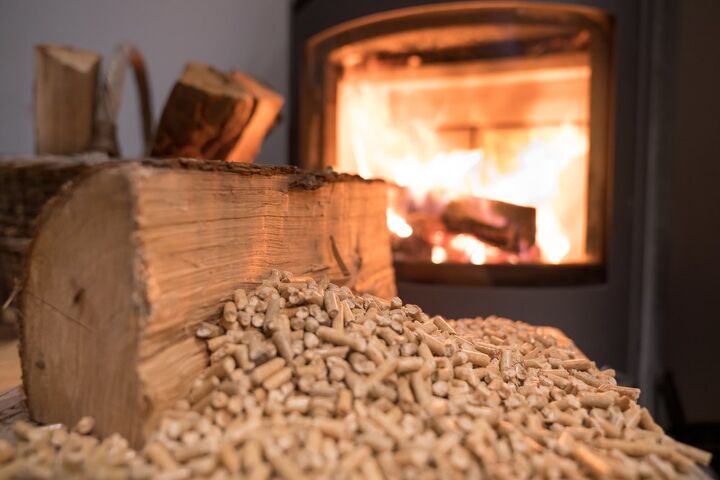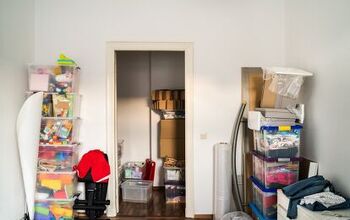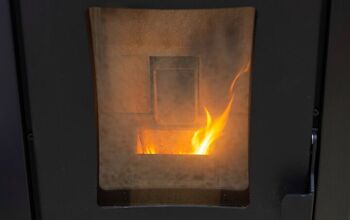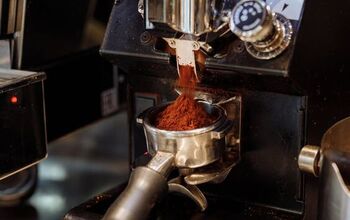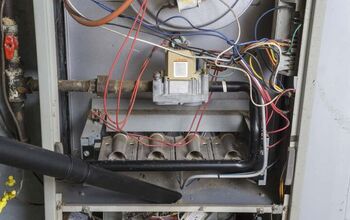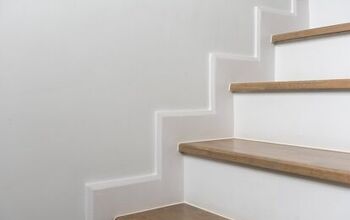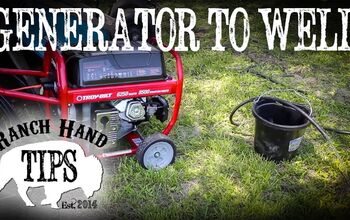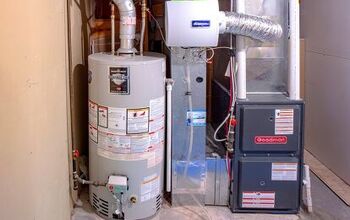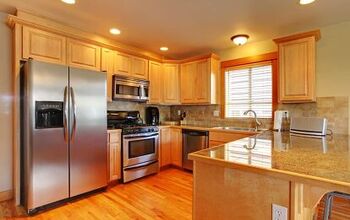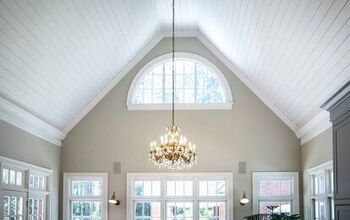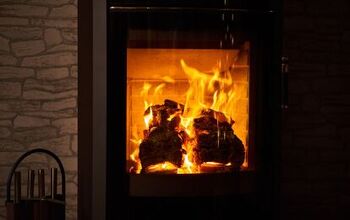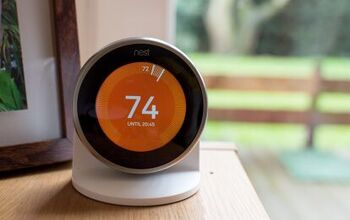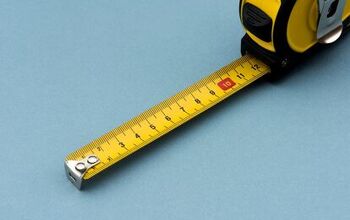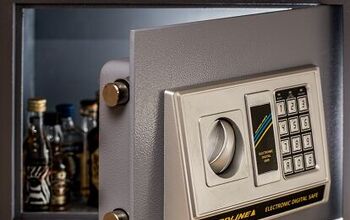Why Is My Pellet Stove So Loud?

A stove pellet is a type of combustion heater that uses cylindrical biomass to warm up your home. They’re electrical, which sets them apart from conventional fire pits and chimneys. Homeowners favor them for their lower purchase and installation costs.
Stove pellets are also preferred for their clean-burning design and they are generally easier to maintain than a chimney. What’s more, they’re available in various sizes and styles so you can choose one that suits your home’s aesthetic. However, they can become noisy if they need maintenance.
Your stove pellet may be extra loud for various reasons. It may need repair, have loose parts, not be standing flat on the ground, need a part replacement, or need cleaning. Stove pellets also make noise from their various parts, including the fan and auger. If your stove is unusually noisy, consider contacting a professional for an inspection.
Before calling a professional, you may be able to pinpoint the source of your pellet stove’s grinding or grumbling.
Do You Need Stove Repair Services?
Get free, zero-commitment quotes from pro contractors near you.

Reasons Why Your Stove Pellet is Making Noise
Your heater may be making a ruckus due to general operation or it may be signaling a bigger issue.
Their Electrical Components Naturally Make Noise
If you’re wondering, “Are pellet stoves supposed to be loud?” the short answer is yes. A pellet stove comprises different parts to bring you warm, clean air.
Most of these parts make some level of noise. Normal sounds include buzzes, plinks, hums, clicks, whirs, and swooshes. Here are the parts that generate these sounds.
- The Combustion Blower/Fume Extractor: Tainted air flows through this stove part and comes out of the flue.
- The Auger: Here, the pellets move from the storage into the burning chamber.
- The Distribution Blower/Fan: This part brings in air from the outside and into the machine to fan the flames. Warm air comes out to heat your room.
- The Fuel Dispenser: The pellets drop from the feeder into the combustion chamber. The falling pellets can make noise, too.
Your Pellet Stove Needs to Be Repaired
If your stove is crying out in notes you’ve never heard before, the cacophony could mean something else. The various parts mentioned above may need repair. This is where you might get in touch with your local handyman.
Your Pellet Stove Needs to Be Cleaned
The beauty of the pellet stove is it burns fuel but keeps ash and smoke out of your home. However, this means the interior can get dirty quickly. If your pellet stove is noisy, it probably needs a cleaning.
Gunk like tar, ash, unburnt fuel, and other debris can build up and block airflow. The blockage is commonly found at the heat exchanger where heat is transferred from the pot to the stove blower.
You can use a vacuum to clean out ash and small debris. You might also need wipes, brushes, cloths, and cleaning solutions for a deep, thorough clean. If there is tar present, a brush with wire bristles can help you scrape it off of the stove’s surfaces.
How Do I Make My Pellet Stove Quieter?
There are different ways to ensure your pellet stove doesn’t make any more noise than it needs to.
Get It Repaired
Perhaps your pellet stove is not only noisy, but you also have trouble with the stove ignition. It may be time to repair your stove either by yourself or by calling a professional. A pellet stove is made up of many parts, and yours may need specific replacements.
Clean It Regularly
If your appliance is dirty, it can start to make noise. The clogged parts can slow down or block operations completely. This can cause the disturbing rattling or clacking sounds you hear.
Again, a common place where blocks occur is where the air flows out of the stove. The exact frequency depends on your stove’s make and model, but most pellet stoves require cleaning several times a week.
Make Sure It’s Level
In addition to keeping your stove clean, ensure that it’s standing upright and level. An uneven stance can cause vibrating or rattling sounds. It’s best to place your pellet stove on a flat, even surface.
Tighten Nuts and Bolts
Loose fittings on your pellet stove can cause troubling noises. Conduct regular checks to make sure all nuts, bolts, and ties are secured in place. With a wrench or screwdriver, you can easily take on this task.
If you suspect that some parts deep within the appliance are unfastened, it’s always best to talk to an expert.
Maintain the Heat Exchanger Rod
This area is where dirt buildup is most likely to occur. When in tip-top shape, the heat exchanger is where clean air moves through to help heat up your room. When in need of cleaning, the heat exchanger can’t perform its job.
Hence, it tends to make noises that let you know it’s time for cleaning.
Seal Off Any Open/Broken Parts
The door gasket/seal around your stove’s door keeps smoke from escaping into your home. When it’s damaged by regular wear and tear, this can cause some rattling. Luckily, there are gasket replacement kits available that are easy to install.
Keep in mind that different stove models require different gaskets. You can also use gasket tape while you’re waiting for a gasket replacement in the mail.
Ask a Professional
Each year, a call to a pellet stove repairman is one way to ensure your appliance is working efficiently. You may even get in touch with your stove supplier’s dedicated helpline if you need to troubleshoot your appliance.
What Type of Pellet Stoves Are the Quietest?
Pellet stoves without a fan system typically make less noise than traditional pellet heaters. That’s because there’s no ventilation system that forces air out of the appliance. These natural convection types may be best if you want to reduce noise.
Can A Pellet Stove Heat An Entire House?
A stove pellet’s heating capacity, measured in BTU, determines if it’s powerful enough for your home. Keep in mind that most homeowners use a pellet stove as a source of supplementary heat.
Let’s take a look at the right stove capacity for the size of your living space.
| Square Footage (sq. ft.) | Stove Capacity (BTU) |
| 600 sq. ft. | 18,000 BTU |
| 800 sq. ft. | 24,000 BTU |
| 1,000 sq. ft. | 30,000 BTU |
| 1,400 sq. ft. | 36,000 BTU |
| 1,600 sq. ft. | 42,000 BTU |
| 1,800 sq. ft. | 54,000 BTU |
| 2,000 sq. ft. | 60,000 BTU |
| 2,200 sq. ft. | 66,000 BTU |
| 2,400 sq. ft. | 72,000 BTU |
Do You Need Stove Repair Services?
Get free, zero-commitment quotes from pro contractors near you.

Related Questions
Do you need to clean your chimney with a pellet stove?
Yes, your chimney still needs to be cleaned once a year at least. This helps prevent fires, corrosion, and airflow problems. A chimney sweep costs about $150 for a basic inspection and up to $3,000 for a Level 3 inspection.What makes a pellet stove rumble?Your pellet stove’s fuel system and regular movements can cause parts of your stove to shift. This can loosen panels or your stove pellet’s leveling feet, causing more rumbling noise than normal. Inside your stove, various parts like the combustion and distribution blower can also vibrate, making your stove rumble.

We are a team of passionate homeowners, home improvement pros, and DIY enthusiasts who enjoy sharing home improvement, housekeeping, decorating, and more with other homeowners! Whether you're looking for a step-by-step guide on fixing an appliance or the cost of installing a fence, we've here to help.
More by Upgraded Home Team



